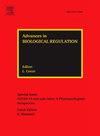In-depth review of breast cancer and inflammation pre-and post-treatment strategies with conventional and novel Steroid agents
IF 2.4
Q1 Biochemistry, Genetics and Molecular Biology
引用次数: 0
Abstract
Breast cancer leads to many women's cancer deaths worldwide and inflammation is essential for tumors to develop, advance and spread within the body. High levels of ongoing inflammation within the tumor help cancer cells multiply, encourage blood vessel formation and allow the cancer cells to evade detection by the immune system, so it is a target of choice for many cancer treatments. The relationship between breast cancer and inflammation is explored, stressing how important both early and late stages are, with both traditional and novel steroid options. For many years, corticosteroids and other conventional steroids have been used to help relieve side effects of treatment and boost the well-being of patients. Even so, steroids only working in certain patients and side effects have pushed scientists to discover new type of steroid derivatives that are better and safer. Targeted inflammation control and altered immune response in tumors by these new steroids could make therapy more successful. This review looks at current evidence from different types of studies to determine steroids' role in treating breast cancer-related inflammation. It also reviews options for using steroids together with chemotherapy, radiotherapy and immunotherapy, focusing on achieving the best anti-inflammatory results while keeping the inability to respond to treatment low. The study also looks at potential future progress in developing steroids, personalized medicine and therapies guided by biomarkers that could greatly improve how breast cancer is managed. Knowing how steroids affect tumors as well as inflammation is necessary for creating good treatment plans that improve breast cancer patients' chances of survival and lower their risk of disease recurrence.

深入回顾乳腺癌和炎症治疗前后的策略与传统和新型类固醇药物
乳腺癌导致全世界许多妇女因癌症死亡,而炎症是肿瘤在体内发展、发展和扩散的必要条件。肿瘤内持续的高水平炎症有助于癌细胞繁殖,促进血管形成,并使癌细胞逃避免疫系统的检测,因此它是许多癌症治疗的首选目标。探讨了乳腺癌和炎症之间的关系,强调了早期和晚期的重要性,以及传统和新型类固醇选择。多年来,皮质类固醇和其他常规类固醇一直被用来帮助减轻治疗的副作用,提高患者的健康水平。即便如此,类固醇只对某些病人有效,而且还有副作用,这促使科学家们去发现更好、更安全的新型类固醇衍生物。通过这些新的类固醇靶向炎症控制和改变肿瘤的免疫反应可以使治疗更加成功。这篇综述着眼于目前来自不同类型研究的证据,以确定类固醇在治疗乳腺癌相关炎症中的作用。它还回顾了类固醇与化疗、放疗和免疫疗法一起使用的选择,重点是实现最佳的抗炎效果,同时保持对治疗的无反应性。该研究还展望了未来在类固醇、个性化药物和生物标志物指导下的治疗方面的潜在进展,这些将极大地改善乳腺癌的治疗方式。了解类固醇如何影响肿瘤和炎症对于制定良好的治疗计划,提高乳腺癌患者的生存机会和降低疾病复发的风险是必要的。
本文章由计算机程序翻译,如有差异,请以英文原文为准。
求助全文
约1分钟内获得全文
求助全文
来源期刊

Advances in biological regulation
Biochemistry, Genetics and Molecular Biology-Molecular Medicine
CiteScore
8.90
自引率
0.00%
发文量
41
审稿时长
17 days
 求助内容:
求助内容: 应助结果提醒方式:
应助结果提醒方式:


